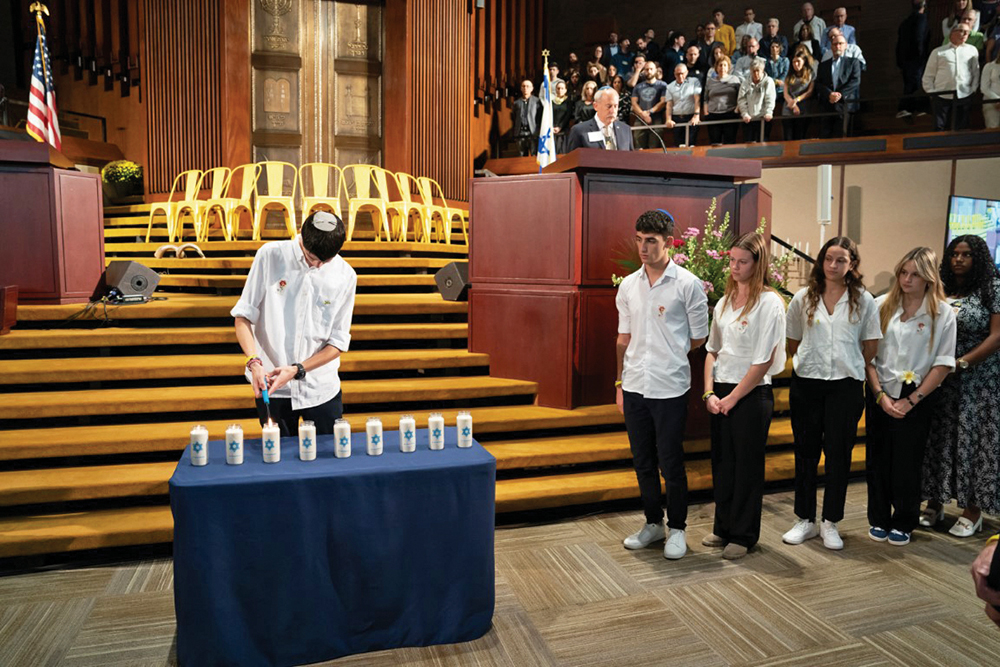
Unity. Community. Achdut.
If there was one message that speaker after speaker, attendee after attendee, at the Jewish Federation of Greater MetroWest’s Oct. 7 memorial event “Marking One Year” stressed, it was the need to come together and remain united.
“We have to stay together as a community,” said Rabbi Paul Kerbel of Temple Beth-El-Mekor Chayim in Cranford before the start of the program. “As Moshe had Aaron and Chur to help him hold up his staff during the Amalekites battle, we have to hold each other up.”
Noting that Jewish time is sacred, event co-chair Deborah Jacob said, “We are here to gather and offer strength to each other.” Joining together as one community, she continued, “is always our way forward.”
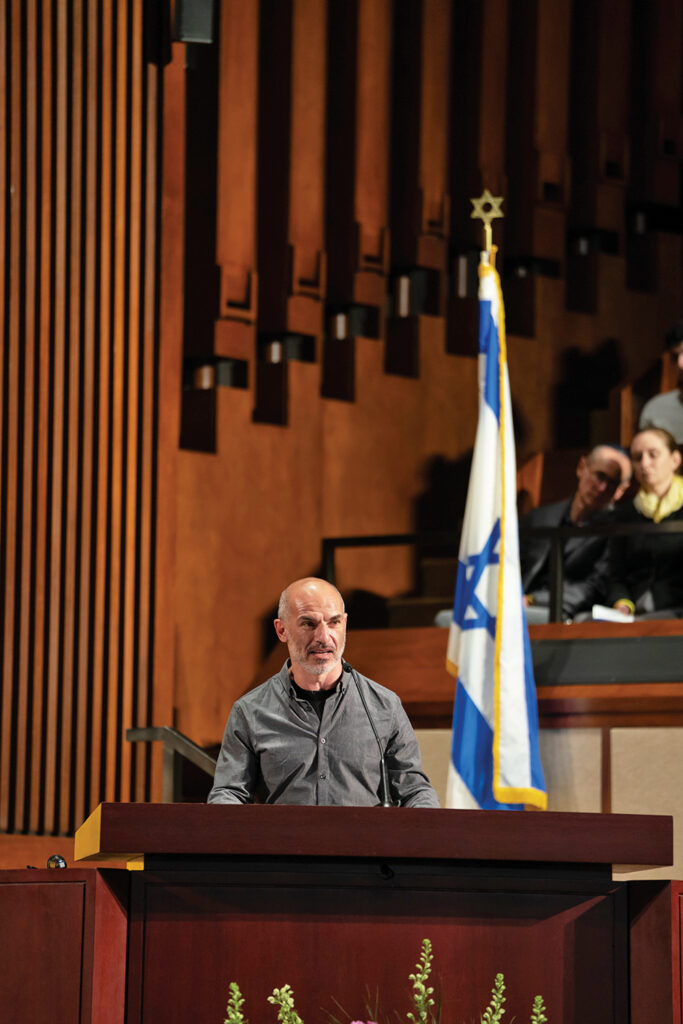
(Credit: Photos by Neil van Niekerk)
Some 3,000 people packed into Temple B’nai Jeshurun in Short Hills, New Jersey for the program under very tight security. Hundreds of people were parked offsite, with shuttle buses providing transportation to the venue.
Among those in attendance were West Orange residents Sharon and Howard Charish. He said that he had come “to support Israel through the worst of times and be inspired by the thousands of people here who are here to pay tribute.”
Sharon added that it was important to “acknowledge the resilience of the Jewish people.” She related that her son and daughter-in-law live in Israel, and a member of their community had died on Oct. 7. A Torah was commissioned in the man’s memory and it was dedicated on the anniversary of that horrific day, turning the despair into something positive.
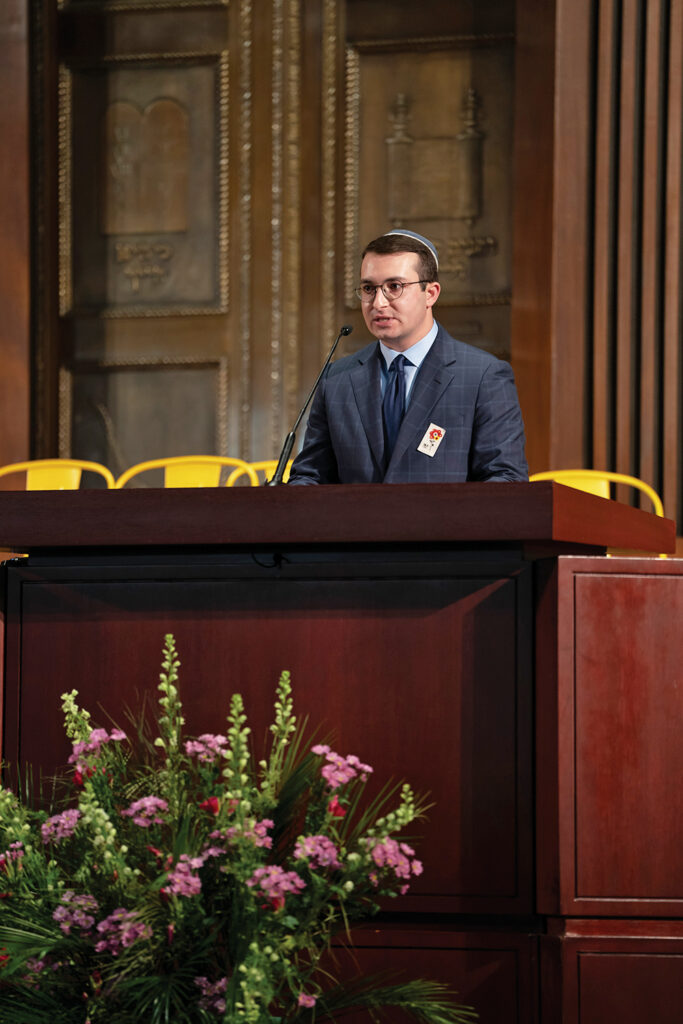
(Credit: Photos by Neil van Niekerk)
In a memorial program that one participant described as just “spectacular,” there were moments of tears and heartbreak coupled with pride and joy.
It was, as Jacob — who co-chaired the event with her husband, Gregg, and Ben and Daniella Hoffer — said, the duality of Jews today is to “hold opposing feelings” such as “grief and pride” and “anger and inspiration.”
The keynote address came from David Boltiansky, a resident of Kibbutz Kfar Aza, who spoke about the beauty of the kibbutz where his three kids had friends and could walk everywhere. It was an “inspiring place,” and then came Oct. 7.
On that day, Boltiansky woke up at 6:15 in the morning and had “15 peaceful minutes,” he said, “and then the rockets started.”
His parents, who live in Netanya, had come to the kibbutz to spend the holiday with Boltiansky, his wife, Hila, and their children, Noa, Yehonatan and Neta, seven people who quickly gathered in the family’s safe room, as residents in the kibbutz only have 50 seconds to seek shelter when a red alert sounds.
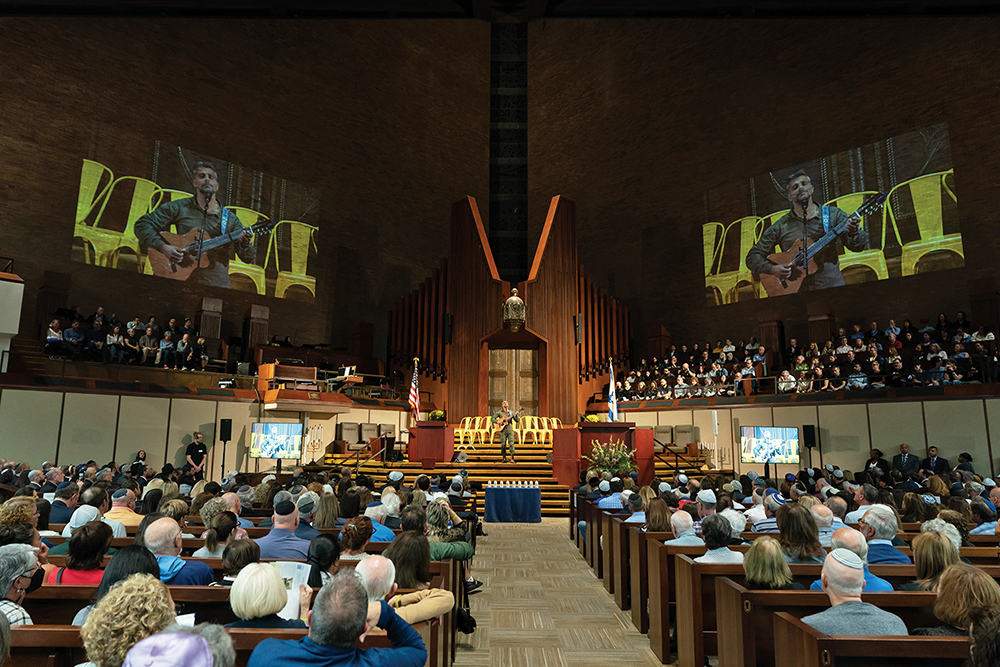
But the red alerts didn’t stop after two minutes, he said. They didn’t stop after three. After four minutes, “I could still hear the interceptors, my thoughts were racing. I got the feeling … we will be trapped” in the safe room.
When a few more minutes passed and the warning sirens continued to scream, the tension in the room was palpable. Boltiansky wanted to know what was happening outside. He slipped out of the safe room. The windows in the master bedroom had been left open and he could hear “bursts of gunfire.
“Our army doesn’t shoot bursts,” he said of the Israel Defense Forces. “I understood that Gazan gunmen were inside the kibbutz, shooting. Panic set in, and I went back into the safe room.”
Fearing what would happen if the gunmen made it into their house, he decided to flee with his family. “My family thought the only danger was from rockets,” he said. But as they exited the safe room “there was chaos, absolute chaos” as they could hear explosions and gunfire. “We opened the door to a battlefield.”
The family split into two cars, with Boltiansky taking the children and his wife driving with his parents. As he exited the kibbutz, he glanced in his rearview mirror; his wife’s car was no longer behind him.
It was almost 6:50 a.m..
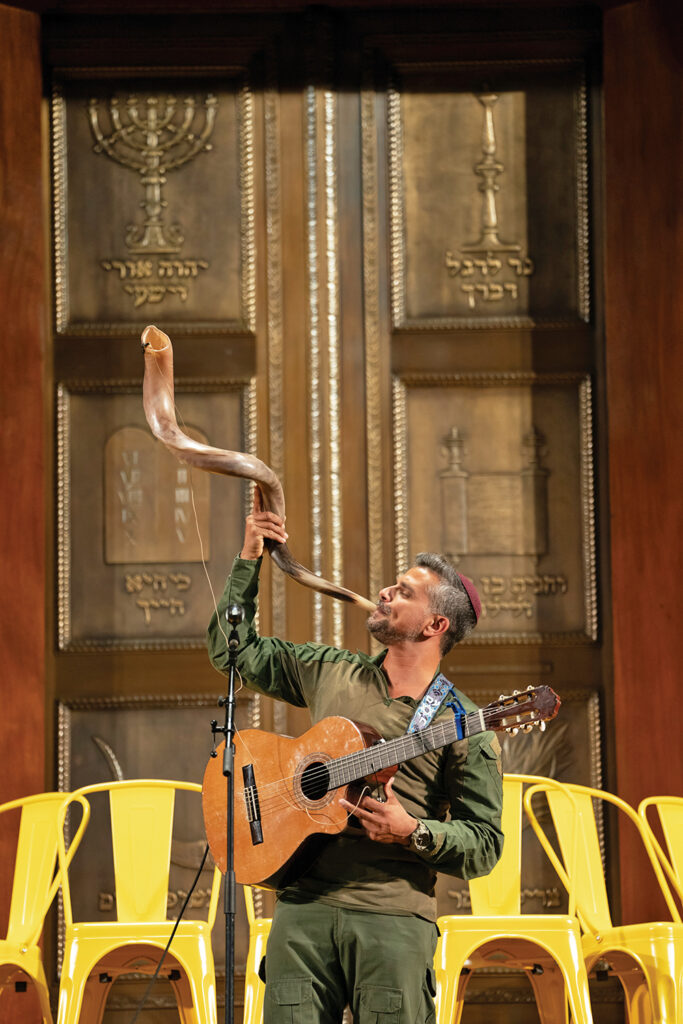
With no choice, he continued driving. As his son tried to help navigate and his eldest daughter tried to block her little sister from seeing the dead and injured lying on the road, Boltiansky drove and drove, stopping once he reached a gas station some miles away. There, he was reunited with his wife, who, it turned out, had stopped to rescue a friend’s dog.
The Boltiansky family survived, but life as they knew it did not.
“We lost 64 members of our community that day, 19 were abducted and five are still being held in Gaza,” he said. “We are living in a temporary home in the center of Israel, and I don’t know where or when we will move from there.
“I am not a public person in my regular life, but it’s important for me, personally, to tell my story and be heard. That’s how I am dealing with the trauma.”
During the program, a moment of silence was held as the community’s rishonim, emissaries from Israel, lit memorial candles. Also serving as a memorial to those killed or missing were eight yellow chairs that were placed on the bimah, one of which was dedicated to the members of the IDF who have fallen in battle in the last year.
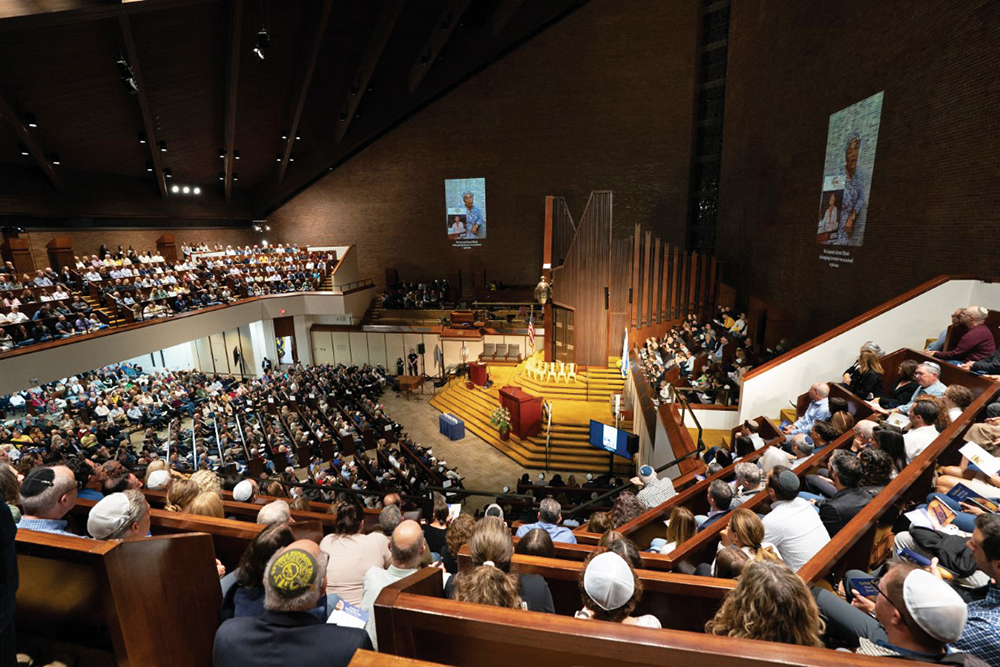
Rutgers University student Joe Gindi, who spoke in front of Congress last year about his experiences with antisemitism on campus in the wake of Oct. 7, told the crowd that the environment this year is “much quieter than expected.”
Rounding out the evening was IDF reservist and singer Noam Buskila, who lost two cousins on Oct. 7. He told the crowd that even though the enemy came to kill the Jews, “there was one little thing he forgot; the enemy will never defeat the spirit of the Jewish people.”
He took out a large shofar and said he was blowing it to “open the gates to the underground tunnels of Gaza. We want to see our brothers and sisters … [and] for Am Yisrael Chai.”
Buskila then performed several songs as the audience joined in. To close out the night, he strummed his guitar one last time and led the audience in the singing of the optimistic Israeli classic song, B’Shana Haba’ah, “In the year to come.”
Faygie Holt is an award-winning journalist whose articles have been published worldwide and translated into several different languages. She is also the author of two middle-grade book series for Jewish children, “The Achdus Club” and “Layla’s Diaries,” both available from Menucha Publishers. Her next book, “Baylee’s Yellow Party” is perfect for new readers and is set to be released later this year. Learn more at faygieholt.com.












